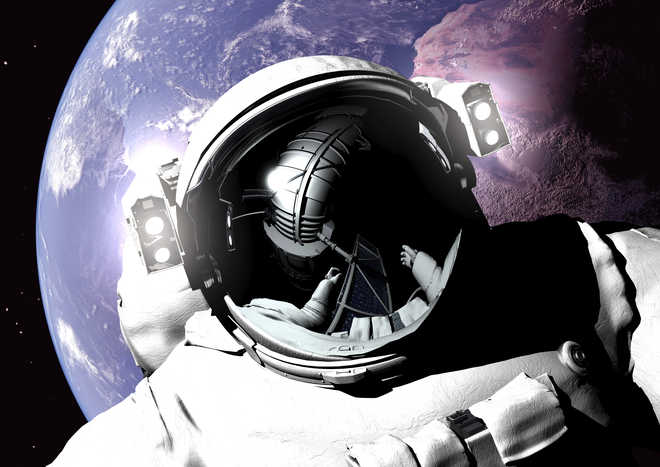
Photo: Thinkstock
Boston
Human heart muscle cells show changes in the way they operate in space, although they behave normally within 10 days after returning to the Earth, according to a study.
The research, published in the journal Stem Cell Reports, examined cell-level cardiac function and gene expression in human heart cells cultured aboard the International Space Station (ISS) for 5.5 weeks.
Exposure to microgravity altered the expression of thousands of genes, but largely normal patterns of gene expression reappeared within 10 days after returning to the Earth, the researchers said.
“Our study is novel because it is the first to use human induced pluripotent stem cells to study the effects of spaceflight on human heart function,” said Joseph C Wu of Stanford University School of Medicine in the US.
“Microgravity is an environment that is not very well understood, in terms of its overall effect on the human body, and studies like this could help shed light on how the cells of the body behave in space, especially as the world embarks on more and longer space missions such as going to the Moon and Mars,” Wu said.
Past studies have shown that spaceflight induces physiological changes in cardiac function, including reduced heart rate, lowered arterial pressure, and increased cardiac output.
However, to date, most cardiovascular microgravity physiology studies have been conducted either in non-human models or at tissue, organ, or systemic levels.
Relatively little is known about the role of microgravity in influencing human cardiac function at the cellular level.
Wu and his collaborators studied human induced pluripotent stem cell-derived cardiomyocytes (hiPSC-CMs).
They generated hiPSC lines from three individuals by reprogramming blood cells, and then differentiated them into hiPSC-CMs.
Beating hiPSC-CMs were then launched to the ISS aboard a SpaceX spacecraft as part of a commercial resupply service mission.
Simultaneously, ground control hiPSC-CMs were cultured on the Earth for comparison purposes.
Upon return to Earth, space-flown hiPSC-CMs showed normal structure and morphology.
However, they did adapt by modifying their beating pattern and calcium recycling patterns, the researchers noted.
The also performed RNA sequencing of hiPSC-CMs harvested at 4.5 weeks aboard the ISS, and 10 days after returning to Earth.
These results showed that 2,635 genes were differentially expressed among flight, post-flight, and ground control samples, the researchers said.
Gene pathways related to mitochondrial function were expressed more in space-flown hiPSC-CMs, they said.
A comparison of the samples revealed that hiPSC-CMs adopt a unique gene expression pattern during spaceflight, which reverts to one that is similar to groundside controls upon return to normal gravity, according to the researchers.
“We’re surprised about how quickly human heart muscle cells are able to adapt to the environment in which they are placed, including microgravity,” Wu said.
“These studies may provide insight into cellular mechanisms that could benefit astronaut health during long-duration spaceflight, or potentially lay the foundation for new insights into improving heart health on Earth,” he said. PTI



























